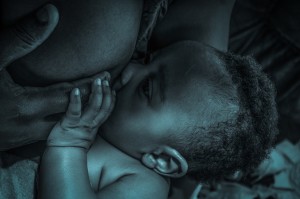For most breastfeeding mothers, Nipple pain is one aspect of the bonding process that they do not enjoy and wish to have something done about it quickly.

Breastfeeding
As part of our service, Mothersbond provides guidance on basic tips to help moms and moms to be enjoy the bonding process and questions on nipple pain has been featuring a lot, so we decided to do a post on the topic.
What is Nipple Pain/Sore Nipples?
Sore Nipples in simplest terms refer to a feeling of bruises or tenderness on the nipple and is reported by many breastfeeding moms. And while it can be uncomfortable, it is actually quite common but you do not have to suffer for too long. At the end of this post, we would recommend a few products that can help, but now, let us understand the problem.
Causes of Sore Nipples
Hormonal Changes: Of course, you just had a baby so there is bound to be some changes in your body in this period. But beyond this, some women even before pregnancy report some tenderness on their breasts and nipple at certain times of the month.
Wrong Latching: Also called shallow latching, this occurs if your baby isn’t well positioned to latch correctly and perhaps only the tip of your nipple is getting into baby’s mouth. Not only would baby not be getting enough food, your breast would be under pressure because it is being suckled but not giving out enough milk.
Infection: Yes, an infection could be responsible.
Sexual Activity: An adult partner suckling from where baby is suckling from can expose you and baby to infection and subsequently causing sore nipples. But to be clear, it doesn’t in anyway mean there’s a problem with this, but some of the foods we eat as adults do not really sit well with baby’s digestive system particularly in the first few weeks of life, and considering that your baby is suckling from there, it may result in some discomfort to the breastfeeding mom.
Nipple trauma: Vigorous rubbing or friction during sexual activity can cause your nipples to become sore. This is usually temporary and goes away once they have a chance to heal. Nipple trauma can also be as a result of the wrong use of breast pumps.
Allergic Reactions: Your nipples are one of the most sensitive areas of your body and react to subtle changes in the environment. Some pointers are cosmetics, weather changes, clothing and fabrics etc.
What not to do?
- Do not ignore thinking it would go away
- Do not apply hot menthol like substances like mentholatum
- Do not press with hot water
As intuitive as these may sound, we actually see some moms do it but it only makes your nipple hurt the more. Your nipple may start to crack and bleed and breastfeeding becomes too painful to bear.
Some mothers never experience any nipple pain at all, but studies show that the majority of women in the US and other western countries do have some nipple pain in the beginning.
Typical nipple pain that does not usually indicate a problem:
- Latch-on pain that lasts no more than 30 seconds into the feeding. This is often described as mild pain or discomfort, but since the pain sensation is very subjective every mother experiences pain differently–some mothers feel more severe pain. The pain should not continue through the entire feeding, and there should not be pain between feedings.
- Pain usually peaks around the third day after birth, and is gone within two weeks.
- There is no skin damage – no cracks, blisters, or bleeding.
- Your nipple should look the same before and immediately after the feeding – not flattened, creased or pinched.
Get help from an experienced breastfeeding counselor if you experience the following:
- Intense, excruciating pain
- Pain that continues through the entire feeding
- Pain between feedings
- Pain that continues past the first couple of weeks
- Skin damage–cracks, blisters, or bleeding
A product that can help is Lansinoh HPA Lanolin (gel). Available in 40ml and 10ml tubes. We recommend it for cracked and sore nipple and can back it with a guarantee that it works well. There may be imitation of this product in the market but we can guarantee that those supplied by us are genuine and of superior quality.
Also, it may be wise to consider buying a breast pump, either the manual or the electric/battery operated option. Just so you can control the number of times you have contact with the affected nipple so as to allow it enough time to heal.
If you find this post interesting and useful, please share it with your friends and loved ones. It really helps us a lot get our message out there. Also tell them about us. Thank you so much.
Do you have any experience to share with us on nipple pain and how you addressed it?
About Mothersbond
Mothersbond is Nigeria’s No 1 Mother and child care online store and resource center. We support new moms and their babies by answering questions on issues of importance to them and also sell products that aid the bonding process between mother and baby. Please follow our social media pages and our blog. You can also subscribe to newsletter.
